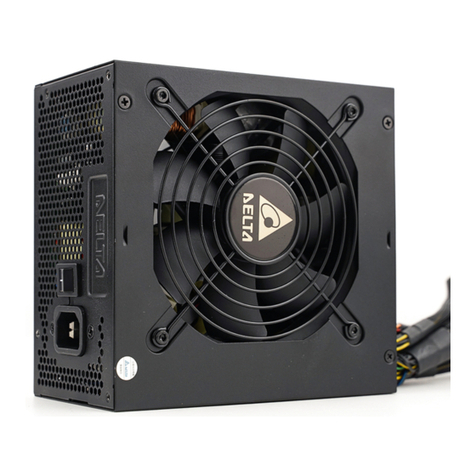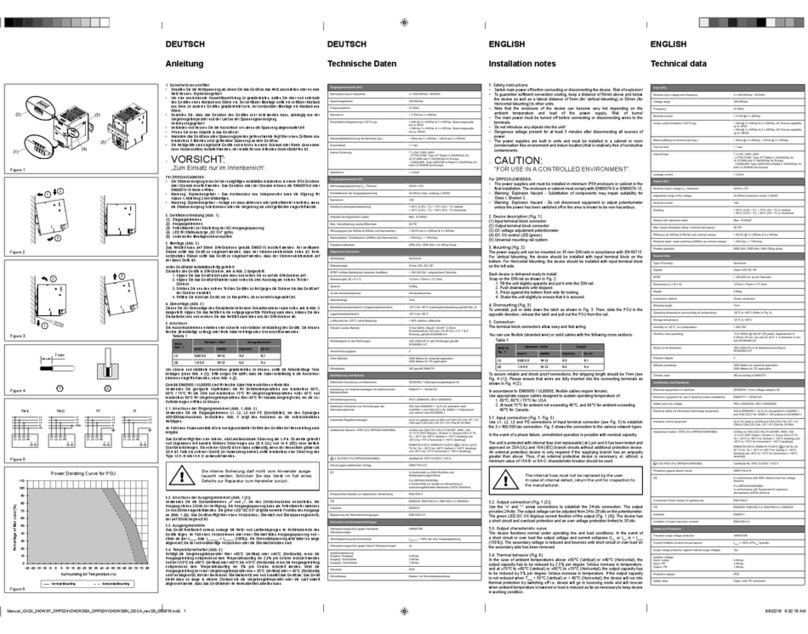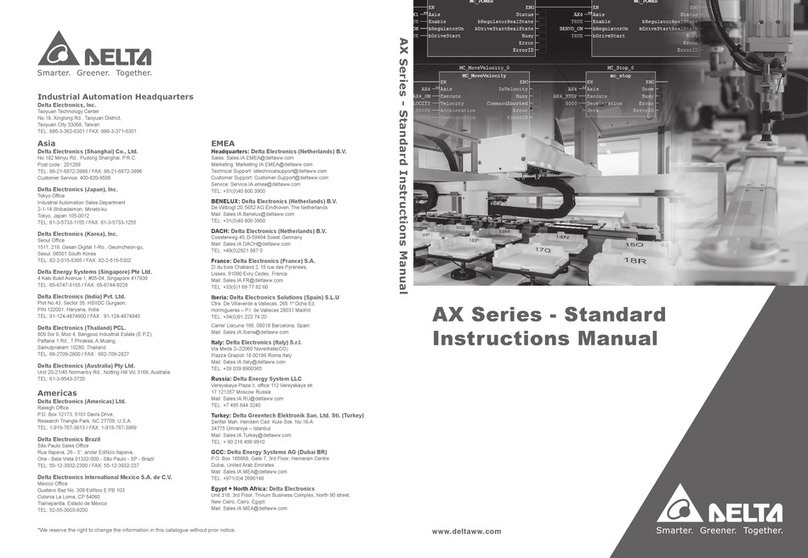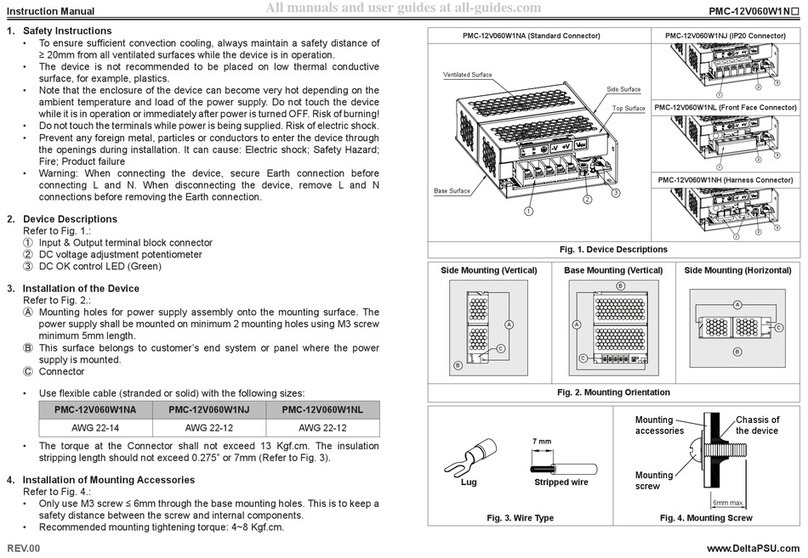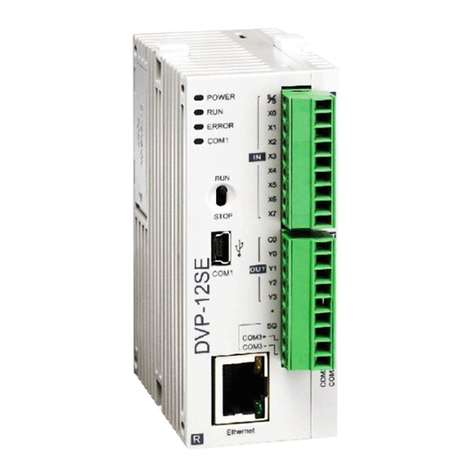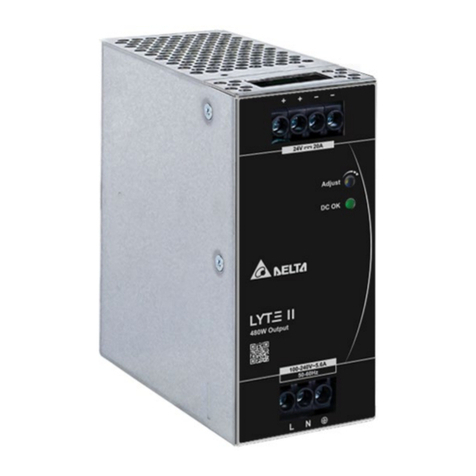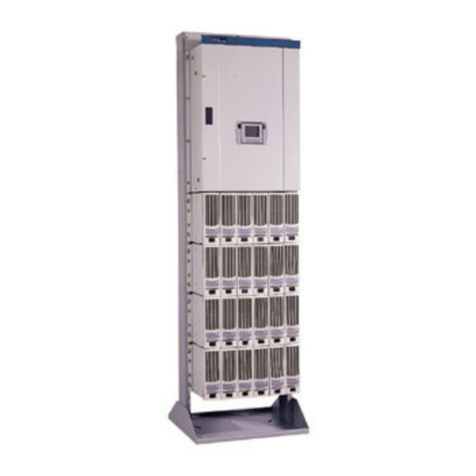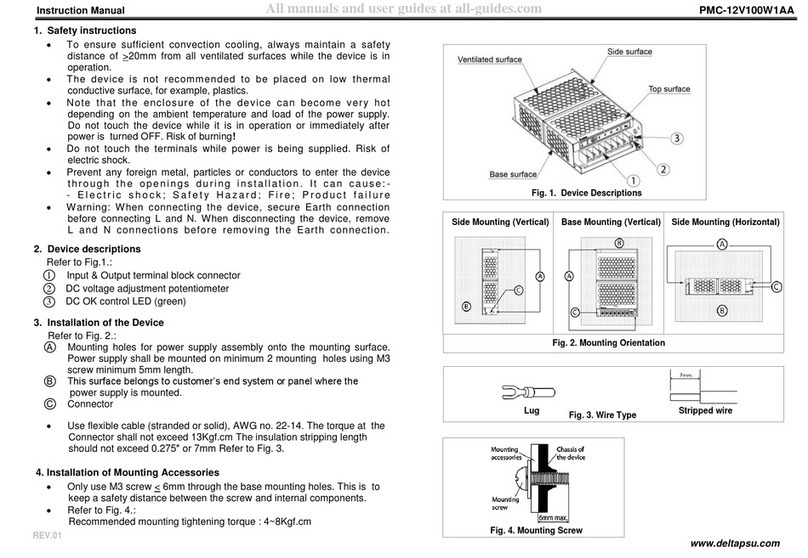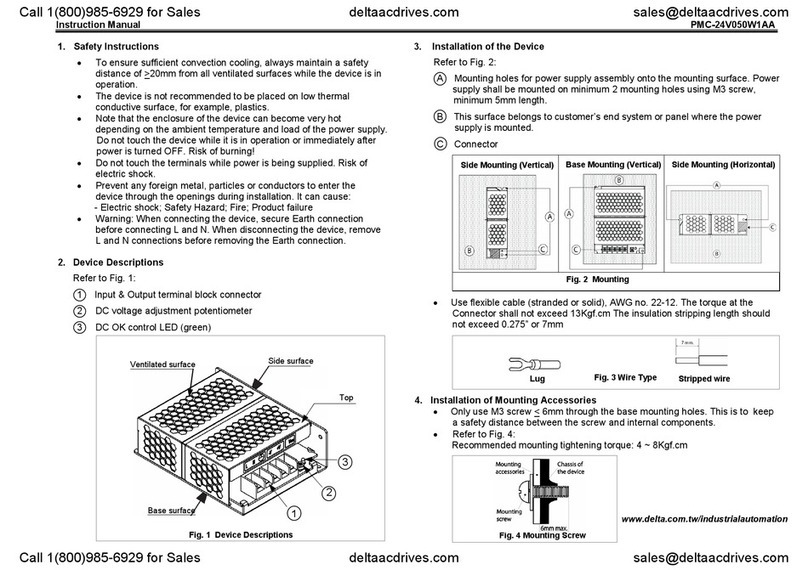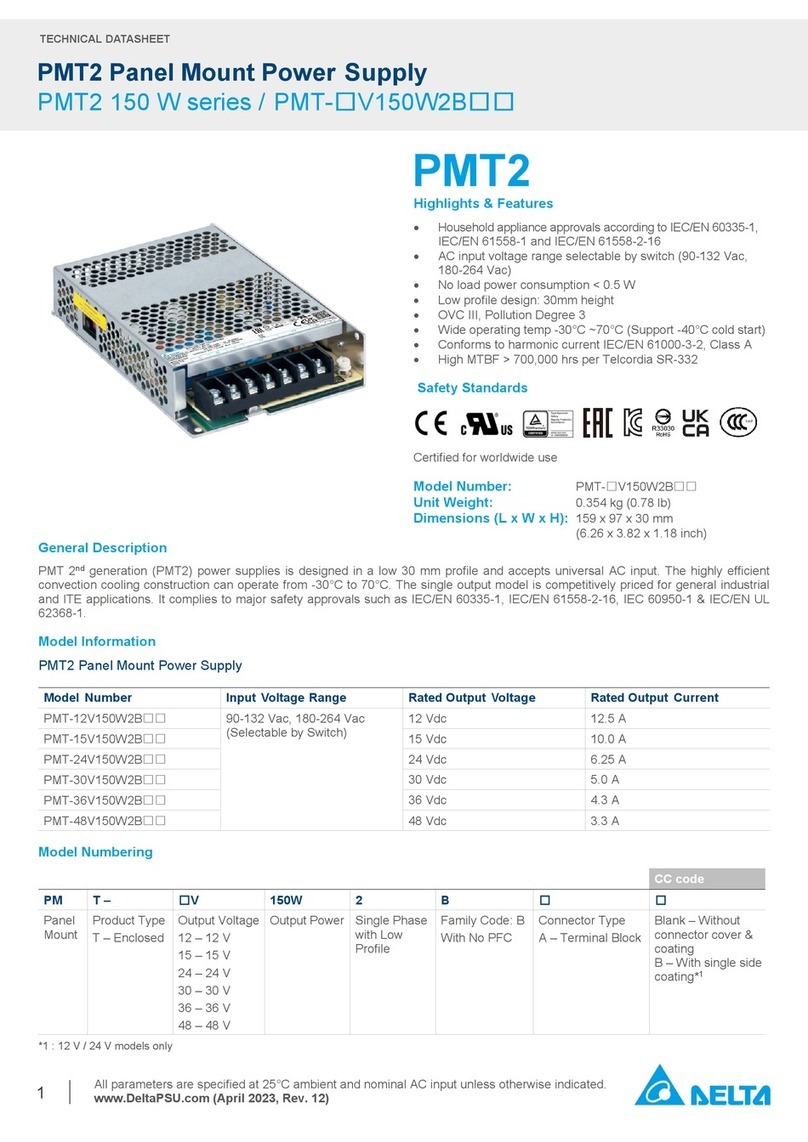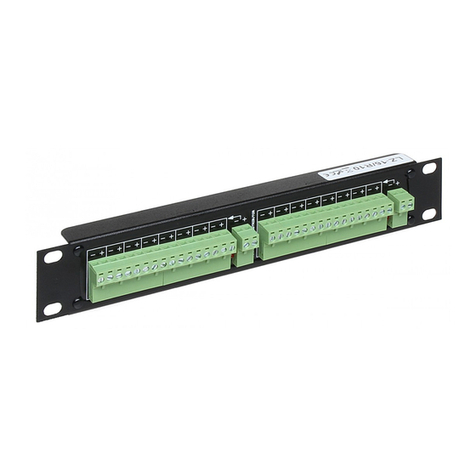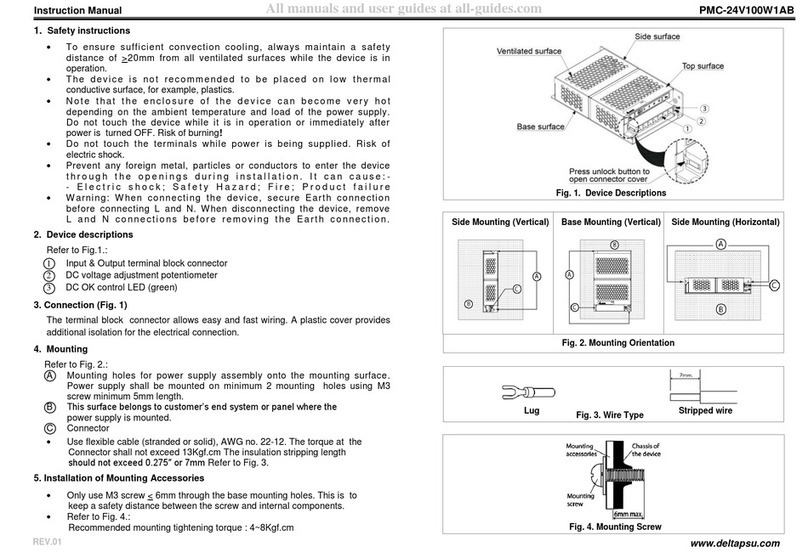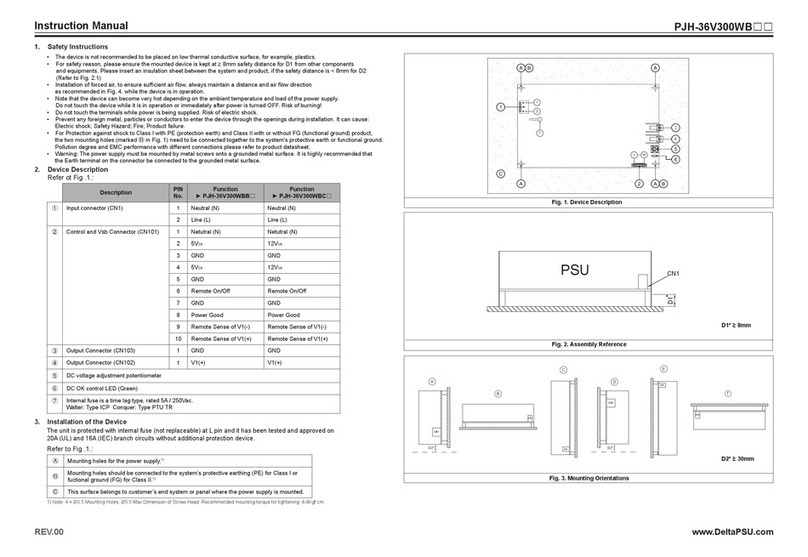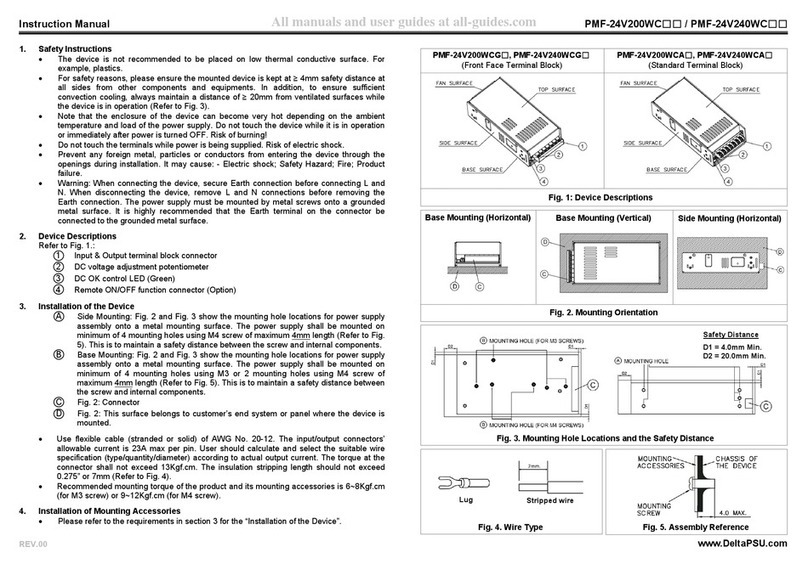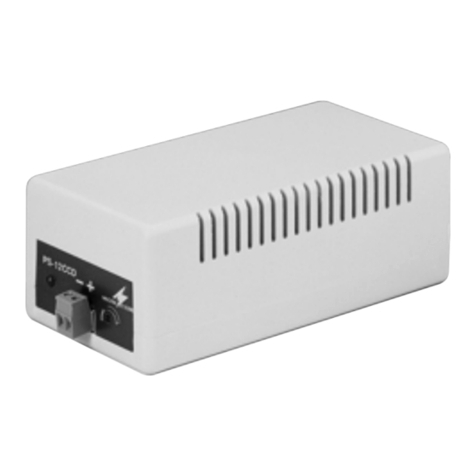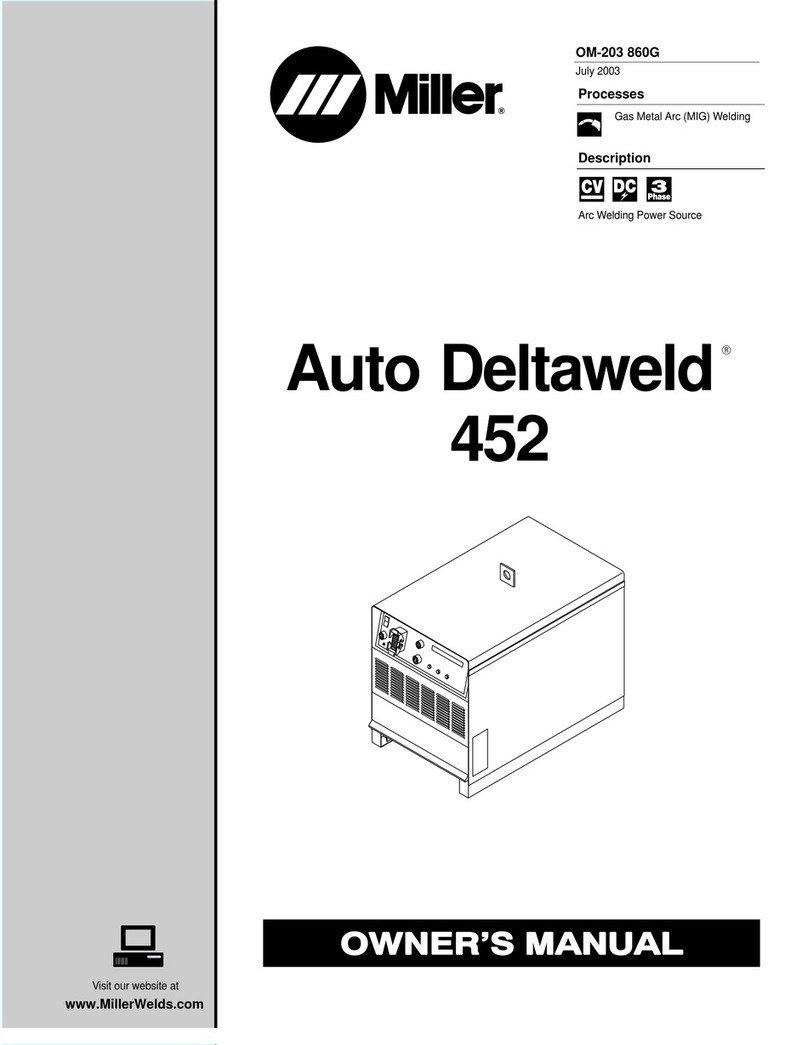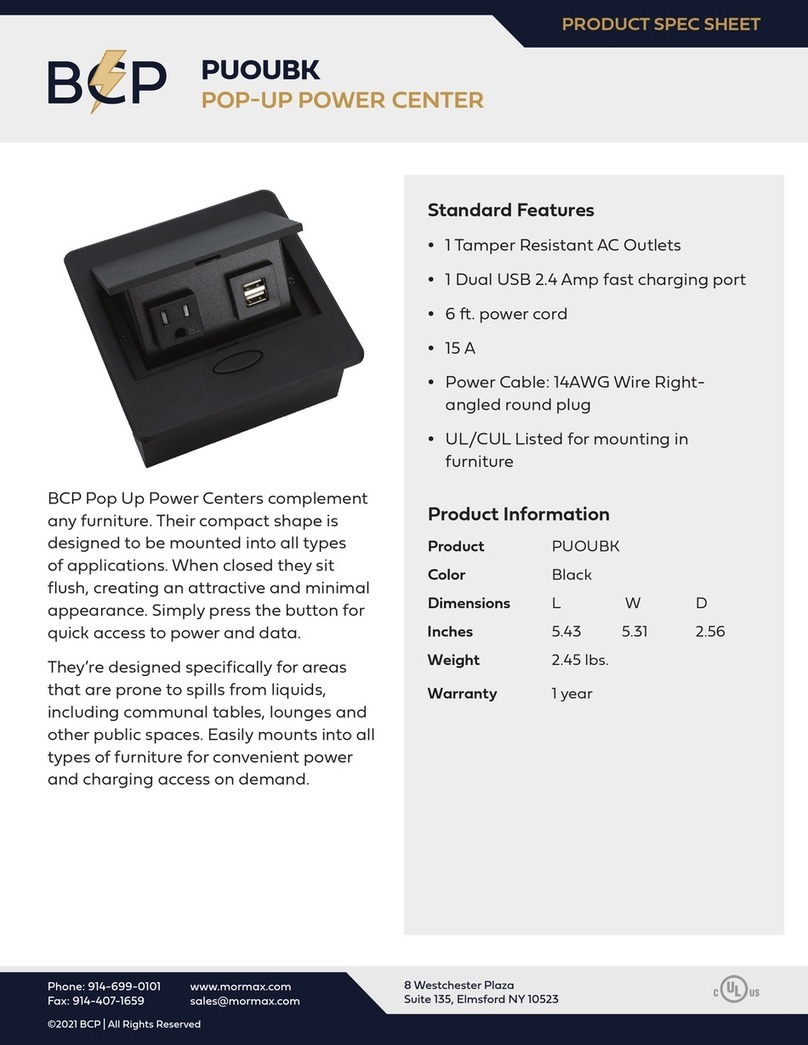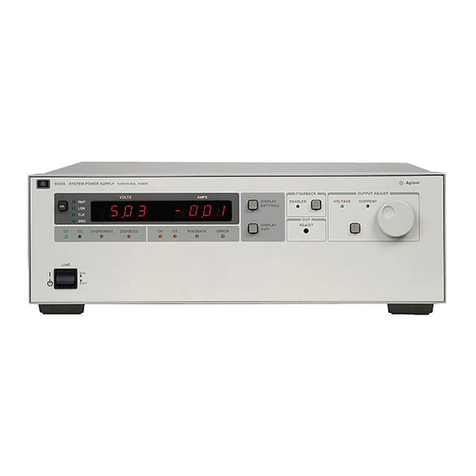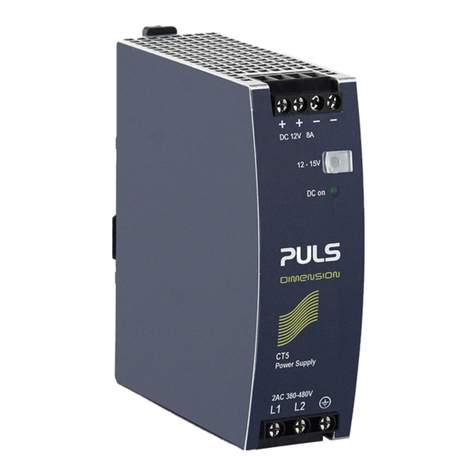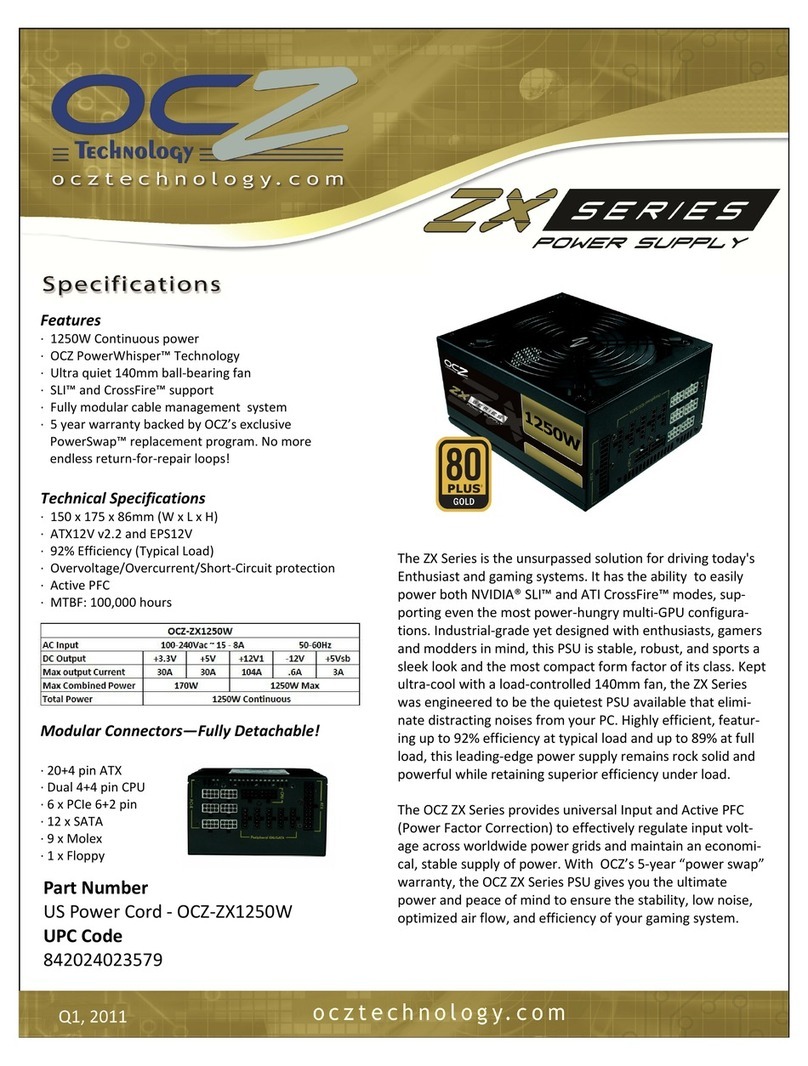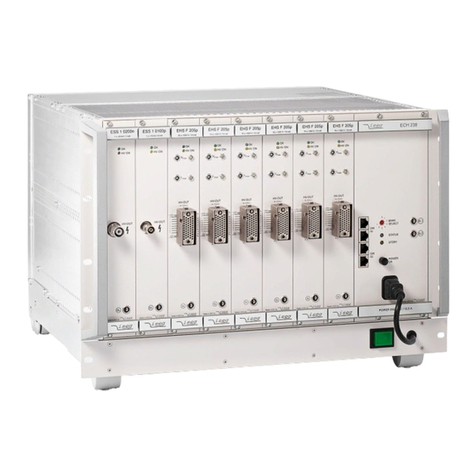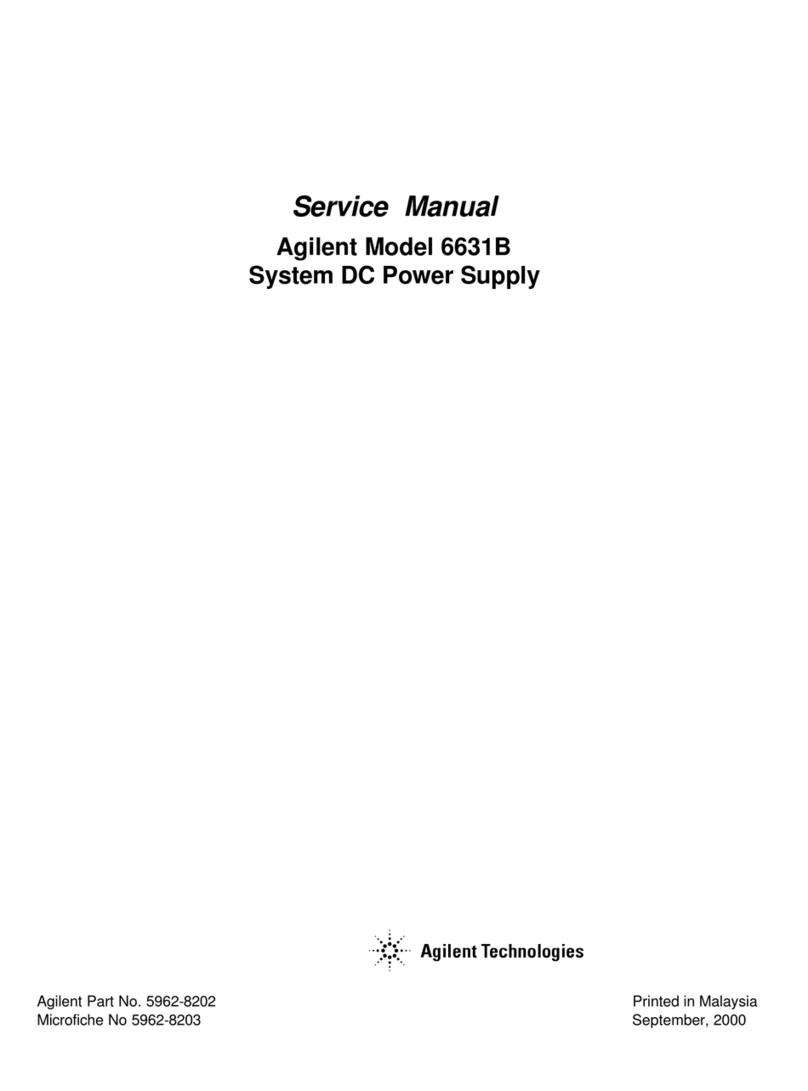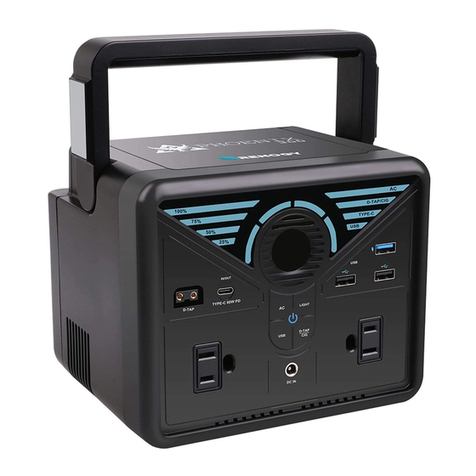
PMT Panel Mount Power
Supply
48V 350W 1
Phase
/ PMT-48V350W1A
□□
All parameters are specified at 25°C ambient and AC input unless otherwise indicated.
www.DeltaPSU.com (November 2018, Rev. 04)
Specifications
Input Ratings / Characteristics
Nominal Input Voltage 100-120Vac, 200-240Vac (Selectable by Switch)
Input Voltage Range 90-132Vac, 180-264Vac (Selectable by Switch)
Nominal Input Frequency 50-60Hz
Input Frequency Range 47-63Hz
Input Current 7.00A typ. @ 115Vac, 4.00A typ. @ 230Vac
Efficiency at 100% Load 87.5% typ. @ 230Vac
Max Inrush Current (Cold Start) 40A typ. @ 115Vac, 60A typ. @ 230Vac
Leakage Current < 3.5mA @ 240Vac
Output Ratings / Characteristics*
Nominal Output Voltage 48Vdc
Factory Set Point Tolerance 48Vdc ± 1%
Output Voltage Adjustment Range 43.2-52.8Vdc
Output Current 7.30A (350W max.)
Output Power 350W
Line Regulation ± 0.5% typ.
Load Regulation ± 1% typ.
PARD** (20MHz) < 240mVpp
Rise Time < 50ms @ nominal input (100% load)
Start-up Time < 1000ms @ nominal input (100% load)
Hold-up Time 16ms typ. @ 115Vac, 20ms typ. @ 230Vac (100% load)
Dynamic Response (Overshoot & Undershoot O/P Voltage) ± 5% @ 10-50% load and 50-100% load
Start-up with Capacitive Loads 8,000µF Max
*For power de-rating from > 50°C to 70°C, see power de-rating on page 3.
**PARD is measured with an AC coupling mode, 5cm wires, and in parallel with 0.1µF ceramic capacitor & 47µF electrolytic capacitor.
Mechanical
Case Cover / Chassis Aluminium
Dimensions (L x W x D) 215 x 115 x 50 mm (8.46 x 4.53 x 1.97 inch)
Unit Weight 0.83 kg (1.83 lb)
Indicator Green LED (DC OK)
Cooling System Forced Cooling
Terminal
☐
M3.5 x 9 Pins (Rated 300V/15A)
PMT-48V350W1AK M3.5 x 9 Pins (Rated 300V/20A)
Wire AWG 22-12
Noise (1 Meter from power supply) Sound Pressure Level (SPL) < 52dBA


